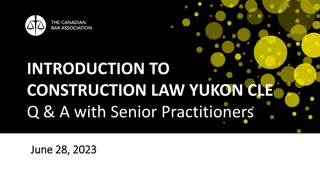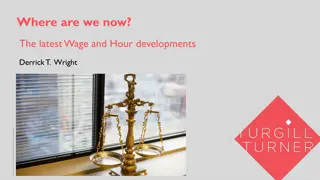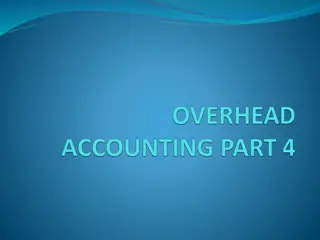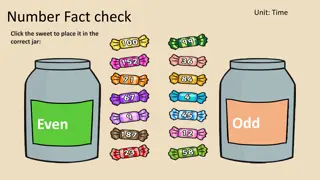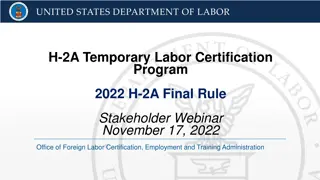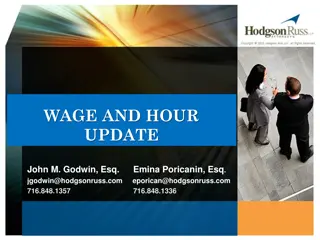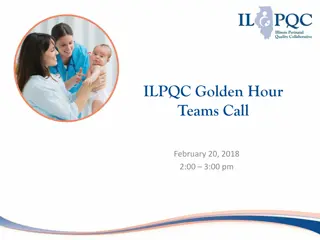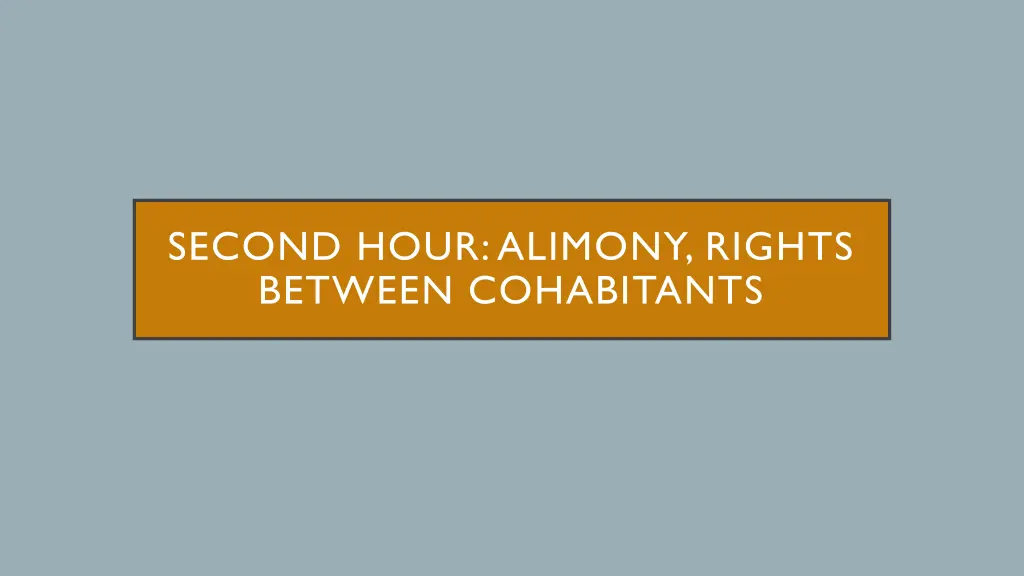
Understanding Alimony and Cohabitation Rights in Relationships
Explore the complexities of alimony laws and trends, including factors influencing award decisions, such as marriage length and income disparity. Discover insights on permanent alimony awards and common reasons for reversal. Additionally, learn about the implications of cohabitation on alimony obligations. Stay informed on recent cases and modifications regarding alimony payments based on income changes and circumstances.
Download Presentation

Please find below an Image/Link to download the presentation.
The content on the website is provided AS IS for your information and personal use only. It may not be sold, licensed, or shared on other websites without obtaining consent from the author. If you encounter any issues during the download, it is possible that the publisher has removed the file from their server.
You are allowed to download the files provided on this website for personal or commercial use, subject to the condition that they are used lawfully. All files are the property of their respective owners.
The content on the website is provided AS IS for your information and personal use only. It may not be sold, licensed, or shared on other websites without obtaining consent from the author.
E N D
Presentation Transcript
SECOND HOUR: ALIMONY, RIGHTS BETWEEN COHABITANTS
In the last decade: - 12 states have adopted alimony guidelines looking to marriage length and disparity of income as factors. ALIMONY TRENDS - Most base the time period on the length of the marriage (Ex: alimony for half the length of the marriage). - Most create a preference for time-limited alimony.
ALIMONY SURVEY Alimony awards 1994 2019 Permanent alimony was awarded in 70% of the cases in which there was a disparity in marriages over 20 years. Permanent alimony was awarded in only 20% of marriages under 10 years. No appealed cases between 2000 and 2020 affirmed awards of permanent alimony in marriages under 10 years.
Permanent alimony was awarded - To a wife in her thirties - Leaving a seven-year marriage - After dissipating between $200,000 and $500,000 in assets GENO V. GENO She was under a conservatorship and had been institutionalized for mental health issues. Alimony The court rejected her husband s argument that alimony should not be awarded after a short marriage.
The most common reason for reversal of an alimony award is failure to award permanent alimony in a marriage over 20 years. HAMMOND V. HAMMOND Husband s income: $12,000/month Wife s income: $600/month 25-year marriage ended with his adultery Award: $500/month for two years Reversed: To award appropriate permanent or lump sum alimony.
BRASWELL V. BRASWELL Modification test: Husband s income dropped from $280,000 to $54,000 as a result of A payor who seeks to reduce alimony or child support must prove their income reduction was not voluntary. - His partner/brother s move - Inpatient treatment for substance abuse - Required practice limits Income loss linked to bad choices (drinking, gambling) have historically been held to be voluntary. - Covid shutdown Held: Modification is possible even though income loss was based on reckless behavior.
COHABITATION TRENDS IN 2019 - 30% of Millennials lived in a traditional family (spouse and children) - 44% of Millennials were married - 12% of Millennials cohabited with a romantic partner
Miss. Code Ann. 93-1-17. Persons authorized to solemnize marriage Any minister of the gospel ordained according to the rules of his church or society, in good standing; any Rabbi or other spiritual leader of any other religious body authorized under the rules of such religious body to solemnize rites of matrimony and being in good standing; any judge of the Supreme Court, Court of Appeals, circuit court, chancery court or county court may solemnize the rites of matrimony between any persons anywhere within this state who shall produce a license granted as herein directed. Justice court judges and members of the boards of supervisors may likewise solemnize the rites of matrimony within their respective counties. MARRIAGE SOLEMNIZATION
Marriage as a status carries with it rights to division of marital property. Without a prenuptial agreement marital property would include - The appreciated value of Chuck s business - Both Chuck and Martie s savings accounts - The marital home - Possibly Martie s $20,000 find RIGHTS BETWEEN SPOUSES
CONTRIBUTION OF FUNDS TO A COHABITANT S ASSETS Cates v. Swain Cohabitant contributed $40,000 to the purchase and renovation of her partner s house. The court of appeals held that the transfer was a gift and denied recovery. The supreme court held that the plaintiff could recover under the theory of unjust enrichment .
JOINT VENTURE/IMPLIED PARTNERSHIP Elements of implied partnership: A cohabitant must prove - Intent to form partnership - Some element of control Carlson v. Brabham A man s use of business income to pay household expenses did not amount to profit-sharing. His partner s involvement as a paid part-time bookkeeper did not prove her control of the business. - Profit sharing
A wife who worked in her husbands restaurant for $250 a week was not entitled to an interest in his business. Her contribution to fungible expenses did not create a right to financial recovery. NICHOLS V. FUNDERBURK For cases supporting recovery, see Turner v. Freed, 792 N.E.2d 947, 948 (Ind. Ct. App. 2003); Watts v. Watts, 448 N.W.2d 292 (Wis. Ct. App. 1989).
Consider: As an alternative to characterizing Martie s $20,000 contribution to build a barn as a claim for unjust enrichment . . . ALTERNATIVE ARGUMENT Martie and Chuck undertook an implied partnernship in Wildlife Petting Zoo: NS and Wildlife Education: NS when they agreed that Martie would fund the new venture and provide the labor, while Chuck provided the business structure and land.
THE PUTATIVE SPOUSE General rule: Cotton v. Cotton: A spouse who believes in good faith that they are married is entitled to equitable distribution. Mississippi adopted the rule in Chrismond v. Chrismond, 52 So. 2d 624, 630 (Miss. 1951). Good faith is not a requirement of the putative spouse doctrine. A wife who committed bigamy was entitled to division of assets as a putative spouse.
FORMERLY MARRIED COHABITANTS Pickens v. Pickens: Woolridge v. Woolridge: A wife who lived with her former husband and worked in his business was entitled to a division of assets based on her labor and her domestic contributions to their relationship. A woman who cohabited with her former husband was awarded a judgment to compensate for the value of one-half of her homemaking services.
JOINT TITLE What is the effect of one cohabitant s joint titling of property in the other s name? Traditionally It creates a presumption that the owner intended a gift of one-half of the property. Pearson v. Pearson The joint title presumption does not apply in equitable distribution. Jones v. Graphia - The court extended Pearson to all transfers, holding that the joint title presumption did not apply to transfer by a cohabitant.
UNIFORM ECONOMIC RIGHTS OF COHABITANTS ACT Section 7 (c). Equitable Relief. Courts shall consider (1) the nature and value of contributions to the relationship by each cohabitant, (2) the duration and continuity of the cohabitation; (3) the extent to which a cohabitant reasonably relied on representations of the other; and (4) the extent to which a cohabitant demonstrated an intent to share, or not to share, property with the other cohabitant.


